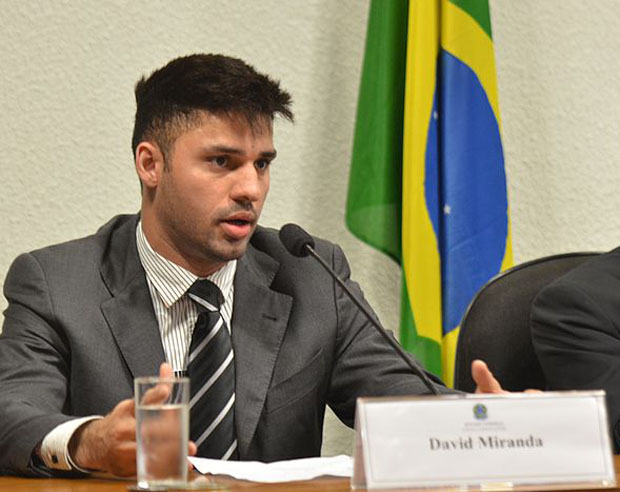4 Mar 2014 | Events

(Illustration: Shutterstock)
Join Index on Censorship for a Google Hangout on how to protect yourself from mass surveillance, and what you can do to demand the right to privacy from your government.
On the panel, we have Jim Killock, Executive Director at Open Rights Group, Mike Rispoli, Communications Manager at Privacy International, and Mike Harris, Campaign Director for Don’t Spy On Us.
The event takes place on Friday 7 March at 4pm GMT. Follow the Hangout On Air here, and have your say on social media with the hashtag #DontSpyOnUS.
4 Mar 2014 | Americas, Awards, News, United States
Glenn Greenwald had previously blogged on surveillance and civil liberties for Salon and the Guardian, attracting thousands of followers with his dogged writing. Laura Poitras’s background is in documentary making, having made highly acclaimed films about Iraqis living during the US military occupation and The Oath, a film about Yemenis caught up in the War on Terror.
A lawyer by training, Greenwald built a strong reputation for detailed, forensic articles. According to the Guardian, an article by Greenwald about Poitras’s work and fears over targeting by the government was what convinced Edward Snowden to approach him with his cache of NSA files in late 2012.
Working with a range of outlets, from the Guardian to Brazil’s O Globo, Greenwald published a range of stories on the workings of the National Security Agency’s surveillance. Germany-based Poitras collaborated with Der Spiegel amongst others, generating huge debate in that country.
In August 2013, Greenwald’s partner David Miranda was detained at Heathrow Airport under terrorism legislation and had documents he had received from Poitras confiscated by UK authorities.
Interviewed by Esquire magazine, Greenwald explained why he felt it was important to uncover mass surveillance: “ultimately the reason privacy is so vital is it’s the realm in which we can do all the things that are valuable as human beings. It’s the place that uniquely enables us to explore limits, to test boundaries, to engage in novel and creative ways of thinking and being”
Nominees: Advocacy | Arts | Digital Activism | Journalism
Join us 20 March 2014 at the Barbican Centre for the Freedom of Expression Awards
This article was posted on March 4, 2014 at indexoncensorship.org
19 Feb 2014 | Campaigns, United Kingdom

David Miranda (Image: Elza Fiúza/Agência Brasil/Wikimedia Commons)
Index on Censorship today expressed disappointment at the High Court’s dismissal of David Miranda’s application for a judicial review of the use of anti-terror laws to detain him at Heathrow Airport.
“This ruling represents a dangerous elision of terrorist activity and legitimate journalistic practice,” said Kirsty Hughes, Chief Executive of Index on Censorship. “We must hope that it will not stand as precedent, as it could seriously endanger journalists working in the public interest.”
Mr Miranda, the spouse of journalist Glenn Greenwald, was stopped and searched under Schedule 7 of the Terrorism Act 2000 on 18 August 2013. He had been carrying encrypted files and documents originating from Edward Snowden’s leak of information on the National Security Agency’s mass surveillance programme.
A coalition of media and free speech organisations, including Index on Censorship, argued that it is inappropriate to use terror laws against someone such as Miranda, who was engaged in journalistic activity in transporting the documents intended to be used as source material for news stories in the public interest.
But the High Court today ruled that the use of the Terrorism Act did not infringe David Miranda’s right to free speech, or the rights of journalists to protect sources and materials. In his judgment, Lord Justice Laws ruled that the Schedule 7 detention of Miranda had been proportionate and did not “offend” his right to free speech under the European Convention on Human Rights.
Read the full judgment here
This article was published on 19 February 2014 at indexoncensorship.org
5 Nov 2013 | Digital Freedom, News, United Kingdom

(Photo: David von Blohn / Demotix)
German and British MPs last night called for NSA whistleblower Edward Snowden to be granted asylum in Germany.
Addressing a meeting called to support the Guardian newspaper in the face of threats from the British government, Conservative MP David Davis said that safeguards for whistleblowers were the only way to protect civilians from an overreaching surveillance and security apparatus, adding that “If whistleblowers can look forward to a life in Germany rather than a life in Moscow, I think that would improve things for everybody.”
German Green Party MP Konstantin Von Notz had earlier said that his country “needed to grant political asylum to Edward Snowden.”
The issue of surveillance has been hotly debated in Germany since it was revealed that the United States’ National Security Agency had been monitoring Chancellor Angela Merkel’s phone.
But speakers at the London meeting, convened by Observer and Vanity Fair journalist Henry Porter, expressed concern that a similar debate was not taking place in the United Kingdom.
Conservative MP Rory Stewart suggested that parliament’s intelligence and security committee should be openly elected and led by an opposition MP, thereby encouraging greater scrutiny of the security services’ actions.
“You are never going to have a government backbencher chairing a committee that is going to criticise the government properly,” said Stewart, a member of the Foreign Affairs Committee and a former diplomat.
Addressing Prime Minister David Cameron’s suggestion that measures would need to be taken to prevent the Guardian from publishing further revelations about surveillance by US and UK authorities, Davis said that no government in any other country where the stories had been published had attacked newspapers in the way the UK government had attacked the Guardian. He said “the only reason [the government] is doing this is out of embarrassment.”
The meeting, held at the Royal Institute for British Architects, heard from English PEN director Jo Glanville, who criticised David Cameron’s dismissal of civil liberties concerns about surveillance as “la-di-da” and “airy-fairy”. Davis echoed that sentiment, saying he delighted in being called “la-di-da” by old Etonian Cameron.



